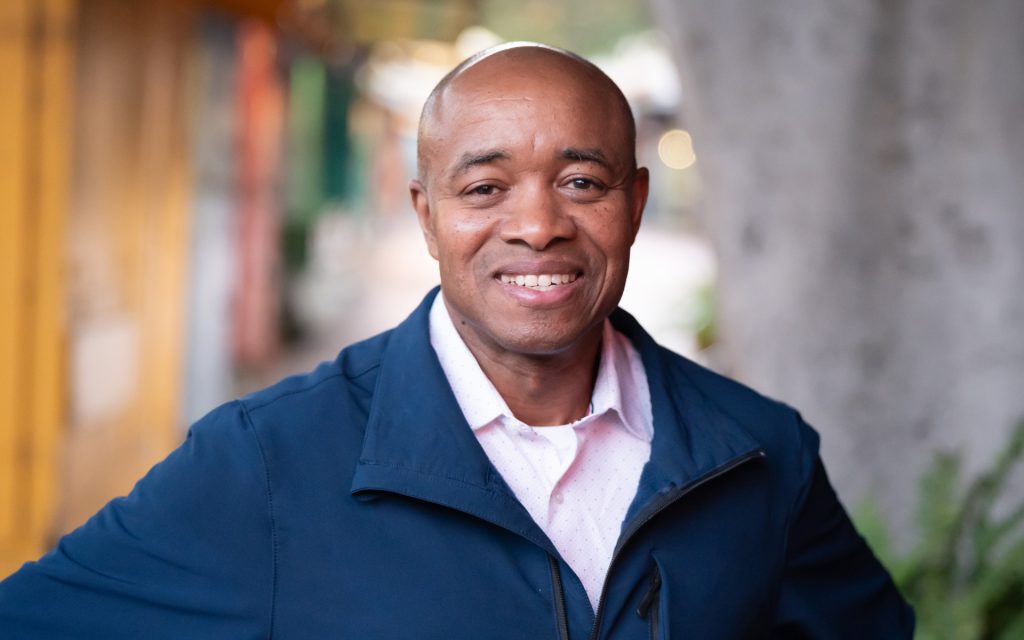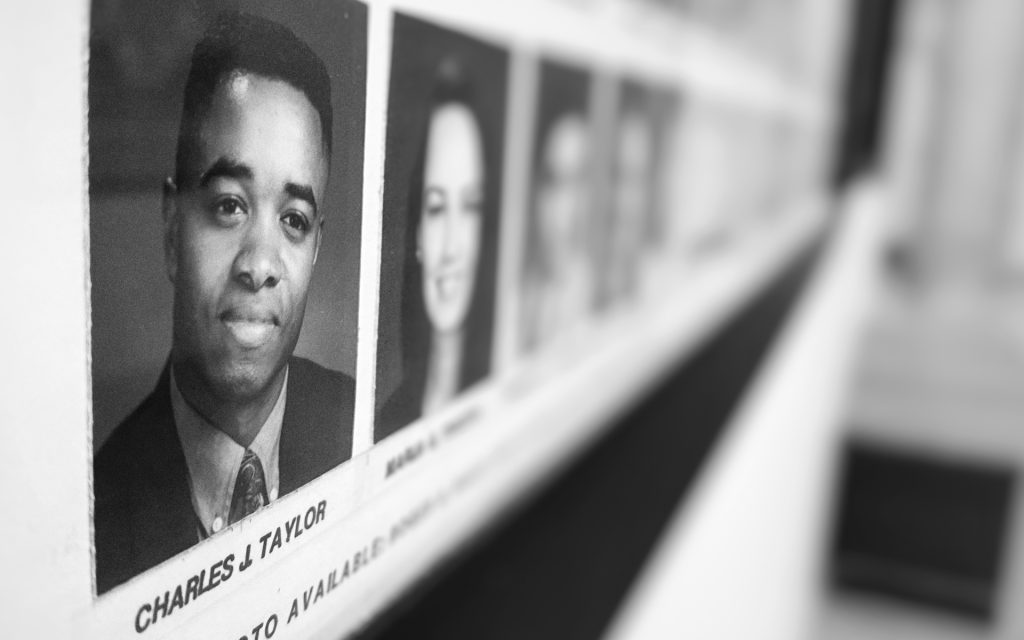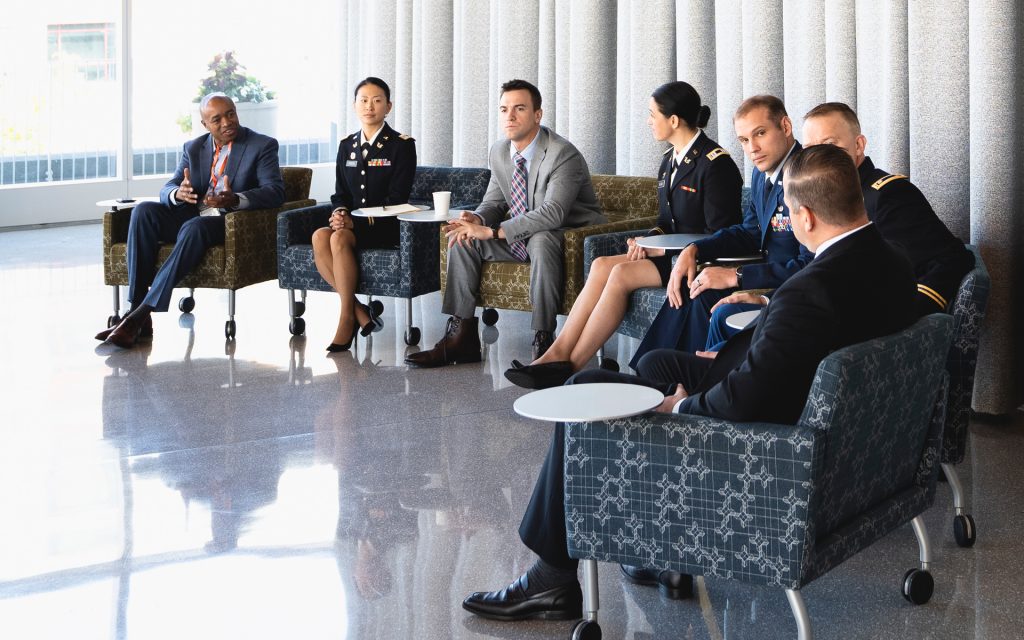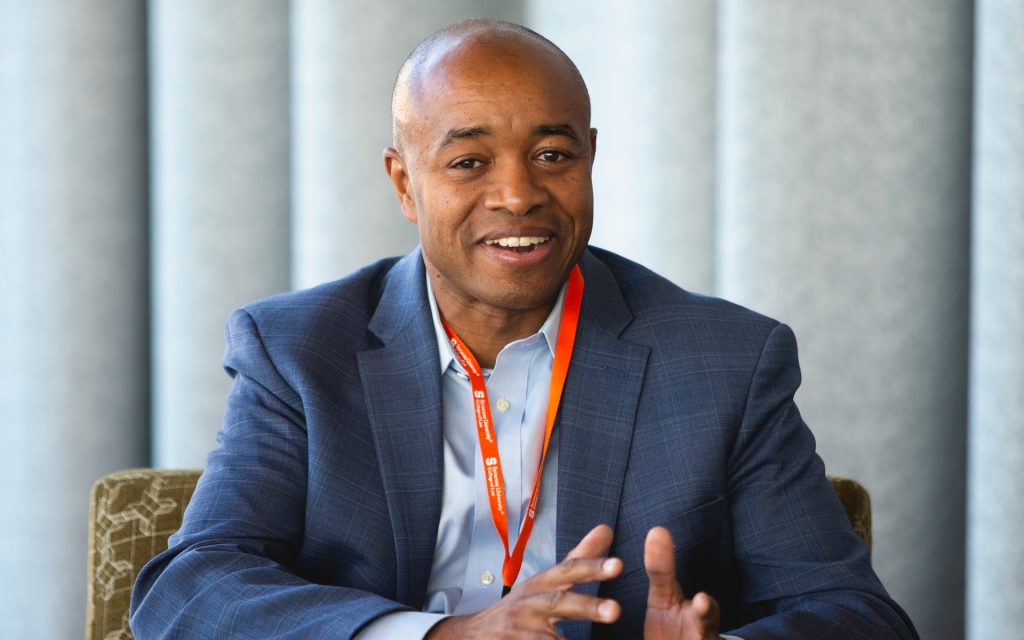
Charles Taylor L’96 was working on his bachelor’s degree in business administration at the University of Southern California (USC) in the early ‘90s when he went to a law school forum and spoke to a representative from the Syracuse University College of Law. His interest in law started around the time of the beating of Rodney King by four Los Angeles police officers and the subsequent riots when those officers were acquitted by a jury. Then, Taylor was also an enlisted sailor assigned as an air traffic controller in the U.S. Navy Reserves. He was weighing a career in aviation and aerospace, “But,” he says, “law school was a rare opportunity, and I wanted to help make the world a better place.”
Taylor was invited to a six-week pre-law program at Syracuse Law, which gave him a first-hand experience of what law school would be like. It made a positive impression, and he decided that law school would be his next step. So, the native Californian moved across the country to attend Syracuse Law.

He recalls several mentors at the law school, including the late Professor C. Roderick Surratt, who taught contracts law; then-Dean Daan Braveman, a distinguished lecturer who was instrumental in teaching him constitutional law; and Professor of Law Paula C. Johnson, who taught criminal law.
“The breadth of the faculty had a positive impact on me, and it kept me interested in pursuing the law,” he explains.
Taylor also participated in the Black Law Students Association and worked at the Housing and Finance Clinic, which gave him an opportunity to help those from the local community with issues related to housing and finance.
After graduating with a law degree, Taylor worked in insurance and finance, while also continuing his commitment to the U.S. Navy Reserves for a time. In addition, he earned an LL.M. in taxation from the University of San Diego School of Law, which led him to a position as tax counsel for the California State Board of Equalization. In 2008, he became a staff counsel for the Office of the State Controller. In his current role, he works for State Controller Malia M. Cohen, who is the chief fiscal officer for the state of California. His responsibilities are primarily focused on unclaimed property issues, where constituents are trying to claim funds from bank accounts or insurance policies, for example, that have somehow been lost and turned over to the state. His job is to work to return money that belongs to the proper owners.

As his career grew, he also stayed true to his military roots. In 2003, Taylor left the U.S. Navy Reserves and joined the U.S. Army Reserves, as part of the Judge Advocate General’s (JAG) Corps, where he remains today as a lieutenant colonel and deputy commander of the Army Reserves 4th Legal Operations Detachment based at Fort Totten in New York. As deputy commander, Taylor executes the unit commander’s vision and guidance, and provides training and legal services in support of a ready, responsive and globally engaged Army and Joint Force, while also working on the legal needs of soldiers, civilian military employees and military families.
His involvement with the Army is part-time, requiring him to travel cross country once a month and two full weeks a year, but he remains committed to his military service.
“It’s a balancing act,” he says of his parallel careers. “My role with the Army is now more of a management function, but managing people is one of the biggest effects that the military has,” he says, noting that his skills learned in the military have helped him be a better attorney in his role with the controller’s office.

Being stationed with the Army in New York State gives Taylor the opportunity to visit Syracuse University on occasion. He has visited campus twice in the past few years, once for a Syracuse Alumni Law Association meeting, and another, last year, for a career program with the University’s Office of Veterans Affairs, talking about the JAG Corps. In March, Taylor also had the opportunity to interact with some of Syracuse Law’s alumni and JDinteractive (JDi) students who were attending a residency on bankruptcy law in Los Angeles. He hopes to look for more chances to keep his connection with Syracuse Law going strong.
Taylor is pleased that he made the decision to take his career in the direction of the law and encourages others to do the same.
“If you’re interested in the law, pursue your dreams,” he says. “Talk to other people who you can identify as mentors and who can help you get through the rigors of law school. And, finally, remember to build relationships—and maintain those relationships to the best of your ability as you progress in your legal career.”
